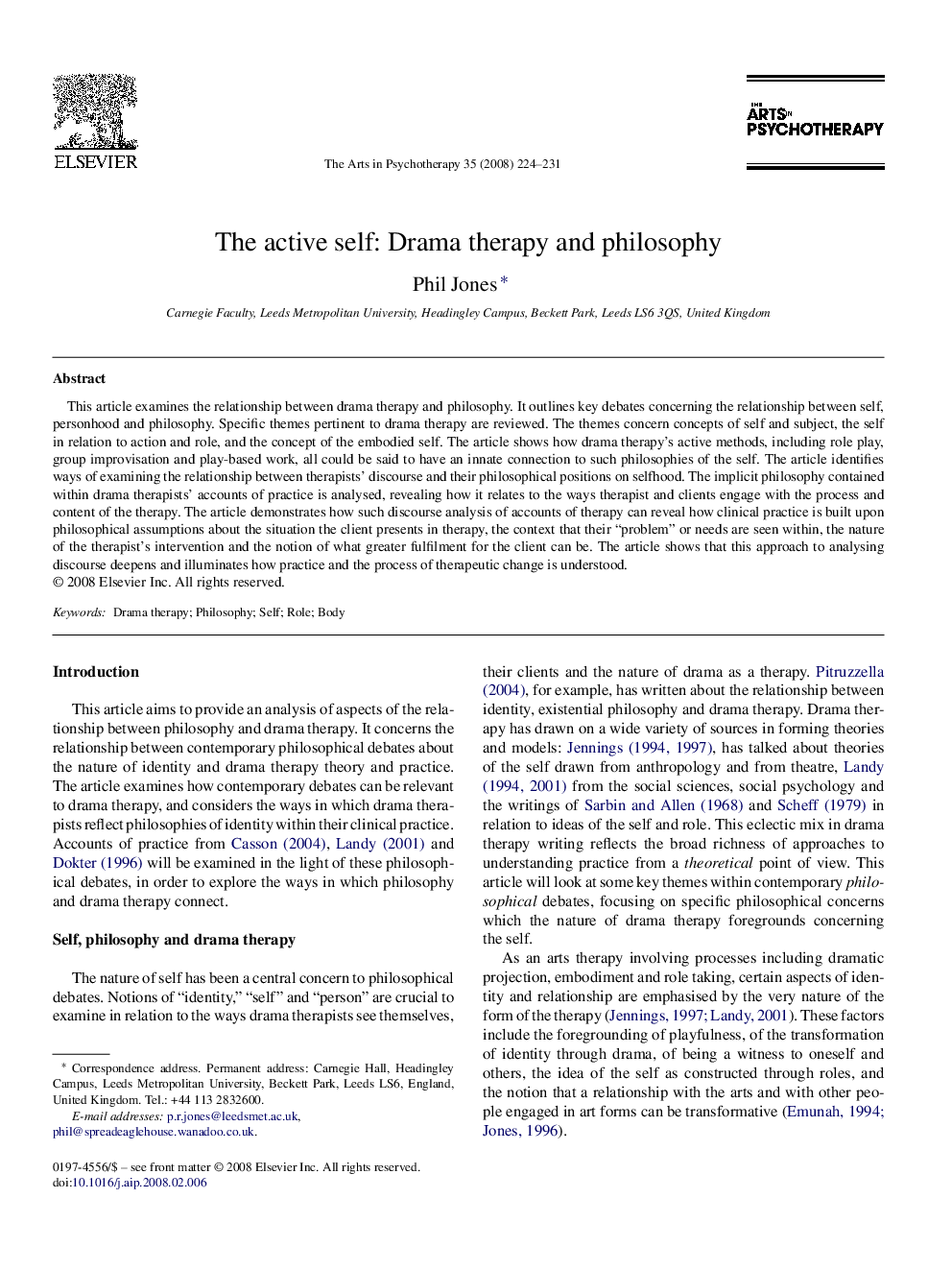| Article ID | Journal | Published Year | Pages | File Type |
|---|---|---|---|---|
| 344091 | The Arts in Psychotherapy | 2008 | 8 Pages |
This article examines the relationship between drama therapy and philosophy. It outlines key debates concerning the relationship between self, personhood and philosophy. Specific themes pertinent to drama therapy are reviewed. The themes concern concepts of self and subject, the self in relation to action and role, and the concept of the embodied self. The article shows how drama therapy's active methods, including role play, group improvisation and play-based work, all could be said to have an innate connection to such philosophies of the self. The article identifies ways of examining the relationship between therapists’ discourse and their philosophical positions on selfhood. The implicit philosophy contained within drama therapists’ accounts of practice is analysed, revealing how it relates to the ways therapist and clients engage with the process and content of the therapy. The article demonstrates how such discourse analysis of accounts of therapy can reveal how clinical practice is built upon philosophical assumptions about the situation the client presents in therapy, the context that their “problem” or needs are seen within, the nature of the therapist's intervention and the notion of what greater fulfilment for the client can be. The article shows that this approach to analysing discourse deepens and illuminates how practice and the process of therapeutic change is understood.
